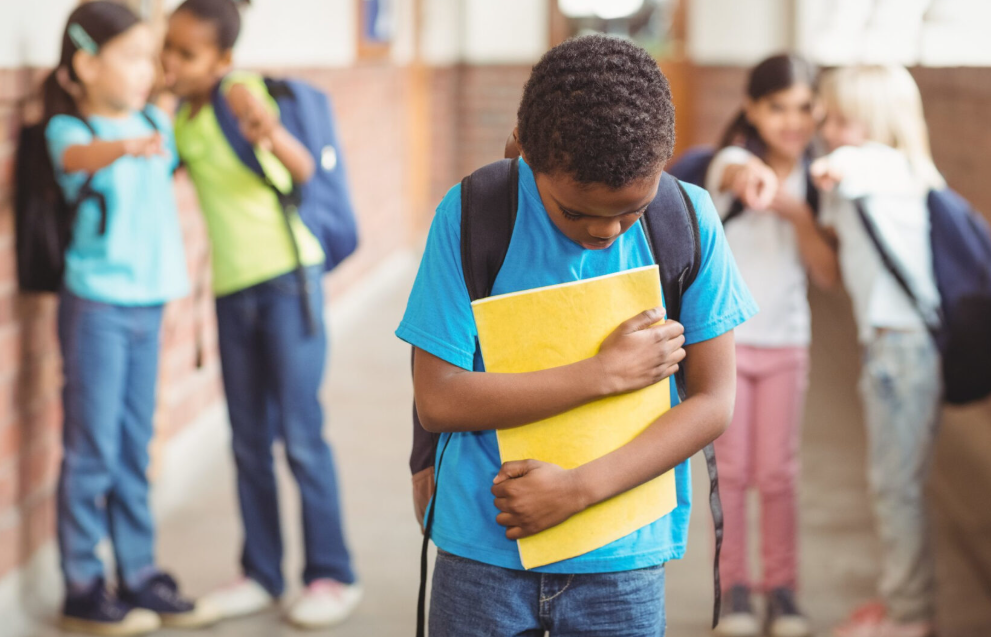
How To Know If Your Child Is Being Bullied At School

Recognizing if your child is being bullied at school can be challenging, as many children may feel embarrassed, scared, or unsure about how to talk about it.
However, there are signs and behaviors that can help you identify if your child might be experiencing bullying:
1. Changes in behavior
- Withdrawal or isolation: If your child suddenly becomes more withdrawn, doesn’t want to interact with friends or family, or avoids social situations.
- Anxiety or fear: If they express fear or anxiety about going to school, might be visibly anxious or show signs of distress when it’s time to leave for school.
- Mood swings: Sudden mood changes such as irritability, sadness, or anger.
2. Physical signs
- Unexplained injuries: Bruises, cuts, or other injuries that your child can’t explain or if they have frequent visits to the school nurse.
- Frequent headaches or stomachaches: Sometimes children who are being bullied experience physical symptoms like headaches, stomachaches, or other complaints that don’t have a clear medical cause.
3. Decline in school performance
- Drop in grades: A sudden decline in academic performance, difficulty concentrating, or lack of interest in school activities.
- Loss of interest in schoolwork: If they suddenly lose enthusiasm for school or extracurricular activities they once enjoyed.
4. Reluctance to go to school
- Avoidance of school: If your child frequently complains of being sick, tries to skip school, or has trouble getting out of bed in the morning.
- Changes in route: If they start taking a different route to school or ask to be driven rather than walk.
5. Changes in social interactions
- Lack of friends: If your child suddenly doesn’t seem to have friends, or they express that no one talks to them at school.
- Social withdrawal: They may stop talking about school activities or friendships, or mention not being invited to social events or groups.
6. Changes in behavior at home
- Aggressive behavior: Some children react to bullying by becoming more aggressive or defensive at home, either with family members or peers.
- Self-esteem issues: If your child starts showing signs of low self-esteem, such as talking negatively about themselves, feeling worthless, or saying they don’t matter.
7. Secretive or protective behavior
- Hiding their phone, belongings, or social media activity: If your child suddenly becomes secretive about their personal items or avoids showing you their social media accounts.
- Unexplained loss of possessions: If they come home with missing items, such as books, lunchboxes, or money, and are unwilling to talk about it.
8. Verbal signs
- Direct statements: Your child might directly tell you that they are being bullied or might make comments like “no one likes me” or “they always make fun of me.”
- Reluctance to talk about school: If they avoid discussing school or seem defensive when you ask about their day.
What you can do:
- Talk to your child: Keep the lines of communication open. Approach them calmly and ask open-ended questions like “How was your day?” or “Is anything bothering you at school?”
- Monitor their social media: If your child is old enough to have social media accounts, keep an eye on their online interactions. Cyberbullying is common, and children may not always tell you about it.
- Contact the school: If you suspect bullying, talk to your child’s teacher, counselor, or principal. They can help investigate and create a plan to address the issue.
- Reassure your child: Let them know you are there to support them and that bullying is not their fault. Ensure they understand that they can come to you at any time for help.
Being proactive and attentive to these signs can make a big difference in ensuring your child feels safe and supported.


You May Also Like

P*nis Size May Really Matter, Study Finds
March 13, 2025
Here’s Why Adult Movies Are Called Blue Films
March 17, 2025